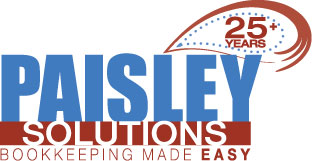Are Your Employees Stealing From You?
Common forms of fraud and theft
- Personal use of company credit or debit cards
- Issuing a check to themselves or a fake organization, then changing the payee in the accounting software
- Check washing – a process where the ink is removed from a check so it can be written to a different payee or for a different amount
- Changing deposit slips and/or pocketing cash or checks.
- Stealing petty cash and substituting false receipts
- Overpaying a vendor or subcontractor, then splitting the proceeds with them
- Routing deliveries of product to other locations
- Failing to return unused inventory or supplies or outright stealing them
- Creating fake employees, falsifying time records or continuing to pay terminated employees
- Purposely not ringing up sales in the register and pocketing the proceeds
- Providing services “on the side” to your customers or using your equipment and materials for side jobs
- Stealing tools or equipment by proclaiming it broke and was disposed of, it was stolen from the job or stolen from their vehicle
Signs that you might have a problem
- Employees who have something to hide may be excessively protective. They may refuse offers of help even when they are obviously in need. They may ignore or stall when asked to provide reports or information. They may try to deflect any investigation by getting angry and accusing you of not trusting them.
- Dishonest employees may keep their area of responsibility (i.e. bookkeeping or inventory) a mess to mask their theft.
- Making personal purchases which seem outside their means is another clue. Are they suddenly driving an expensive car or buying a second home? They may provide a reason, truthful or not, such as receiving an inheritance or hitting the lottery.
- Shortages of money when business is going well.
- Late notices from vendors and/or finance charges due to late payments.
- Bank overdrafts
- Cash register close out funds are consistently over or under for an individual employee
Steps to minimize the risk of theft and fraud
- Bookkeeper/Office Manager (or anyone involved in handling funds)
- Limit check signing authority and do not use signature stamps. Never tell an employee to sign your name to a check or document. If someone with check signing authority leaves your employ, remove them immediately.
- Require that paper bank statements come to you first, unopened and ask the bank to include images of the checks. Review the payees and signatures on all checks. Review all debit card, wires out and electronic disbursements. You can do this online as well but it is easier to forget or procrastinate.
- Ask questions and review the bookkeeping often and unannounced
- Limit access in your QuickBooks or other accounting or point of sale software
- Lock up your blank check stock and ask for a monthly report showing checks issued in sequence. Require voided checks to be returned to you. Track down any missing checks.
- Having processes to minimize the opportunities and monitor all funds in and out signals to a would be thief that you are watching without making employees feel untrusted. Honest employees will view it as a sound business practice. Trust but consistently verify!
- Never provide employees with debit cards. Instead, issue credit cards with purchasing limits. If someone with a card leaves your employ, cancel it immediately.
- Require that paper credit card statements come to you first, unopened. Review all charges and question anything suspicious. Require all card holders to submit paper receipts.
- Get the mail and distribute it. Watch for anything unusual, especially anything from a credit card company or bank as someone could open unauthorized accounts in your name.
- Limit access and set approval requirements for bill pay software or online bill pay through your bank. If someone with access leaves your employ, remove them immediately.
- Insist all users of your accounting, point of sale or inventory software have individual log in and password credentials. Insist that they do not share this information.
- QuickBooks and many other software products have a user log or audit report available that enables you to see who initiated and/or made changes to transactions.
- Handle payroll yourself or insist on reviewing the complete set of payroll reports every pay period.
- Limit cash register access to individual employees and require daily reconciliation of funds
